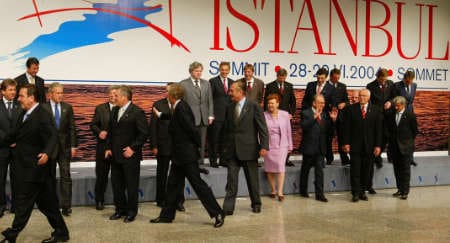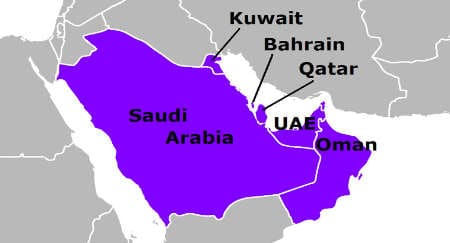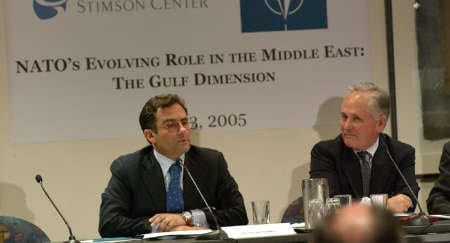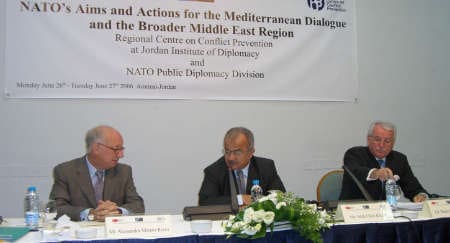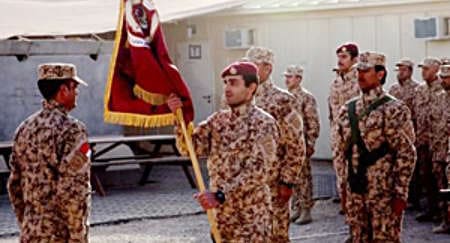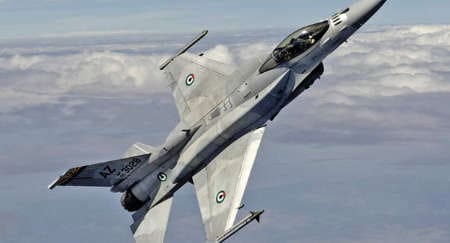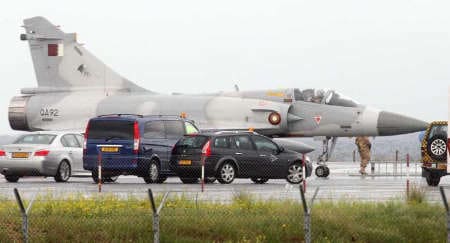What does the Arab Spring mean for NATO? Jean Loup Samaan looks at whether the Alliance needs to change its approach to Arab countries post-Arab Spring, how these changes could look and how to overcome obstacles.
Eight years after NATO initiated its engagement with Gulf countries through the Istanbul Cooperation Initiative (ICI), the results have been modest, not to say disappointing.
This is paradoxical, even troubling, when one considers the genuine strategic relevance of the ICI. Indeed the Gulf is - and for the near future is likely to remain - a critical region for NATO. It encapsulates all the major security challenges the Alliance aims to tackle: maritime security, risks of proliferation of nuclear weapons, as well as state failure.
Moreover, in times of financial austerity in NATO countries, the partnership approach increasingly appears the most appropriate way to share the burden between Allied members and local partners, thus creating a pragmatic division of labour.
Learning the lessons of the ICI
Back in 2004, the initial assumption behind the ICI was that the political realm of the partnership would not suffer the same obstacles that NATO's Mediterranean Dialogue (MD) programme had encountered. The MD was supposed to use the Oslo peace process between Israel and the Palestinian Authority to reinforce political and security cooperation between NATO and its neighbours on the southern shores of the Mediterranean. But following the breakdown of the diplomatic talks, implementation of the MD became extremely difficult.
At first sight, the political environment of the ICI looked much more favourable to cooperation. There was no issue among the partners as contentious as the Israeli-Arab issue. The ICI was therefore designed using a reversed pattern. While MD would focus on overcoming political obstacles through diplomatic dialogue, the ICI would adopt a bottom-up approach by building practical military-to-military ties to flesh out the political rapprochement.
However, from the start, NATO encountered several obstacles:
First, Saudi Arabia and Oman, which account for approximately 70% of the Gulf countries’ defence expenditures, did not join the ICI. True, Oman did not completely reject cooperation with NATO. And over recent years, there have been numerous indications that the Sultanate favoured closer relations.
However, caution and balance tend to prevail in Muscat’s posture towards NATO. The popular narrative in the Middle East portrays the ICI as a NATO-GCC alliance against Iran. This would be is embarrassment for Oman, which aims to maintain good political relations with Tehran.
In the case of Riyadh, such a narrative is less unsettling. But Saudi Arabia, being the regional powerhouse, did not want to be put on a par with small Gulf kingdoms that rely heavily on external powers for their security. If Saudi Arabia was to establish formal relations with NATO, it would have to be a tailored, one-on-one framework. Overall, Saudi Arabia’s leadership of the GCC underlines the difficulty NATO will have playing a role in the region without engaging Riyadh.
The second obstacle to ICI's advance is its failure to “multilateralise” its process. The Gulf countries that joined the ICI (Kuwait, United Arab Emirates-UAE, Qatar, and Bahrain) expressed their preference for a bilateral framework, rather than a multilateral one. They wanted to engage with NATO. But on their own. Not side by side.
The ICI partners have approached NATO’s initiative the same way they approached their multiple national security arrangements and guarantees with western powers. Because of wide geopolitical divergences and some mistrust between GCC countries, they have sought close bilateral relations to pursue their own distinctive diplomatic goals.
The prevalence of bilateral defence agreements among Gulf countries has led to few collective priorities, inconsistent military-to-military relations, and unnecessary capabilities redundancies. Consequently, officials from Gulf countries tend to ignore their neighbours’ agenda with NATO, and formulate their own strategies without envisaging a precise regional dimension.
But this is only one part of the equation, and one that NATO obviously cannot control. Regarding the partnership per se, the Alliance should waste no time in reconsidering its bottom-up approach.
The case for a NATO-Gulf strategic dialogue
Some achievements in NATO-GCC relations are worth considering and using. For instance, the Gulf countries have been amongst the most active partners in NATO-led operations (the UAE and Bahrain in ISAF; the UAE and Qatar in Operation Unified Protector). These achievements prove that what is at stake is not NATO’s Gulf policy as a whole but the ICI as a means of implementing it. I have heard this paradox emphasised by some Brussels insiders who argued that these successes could well have taken place anyway.
To prevent the ICI becoming irrelevant in the future, we must refine its methodology and agenda priorities - to bring it closer to NATO and ICI partners’ security concerns.
The first imperative is to extend the bilateral nature of the ICI: the multilateral track should become its core arrangement. This could be developed by creating a strategic dialogue between ICI partners held twice a year, once in Brussels and then once in one of the Gulf capitals. Additionally, Saudi Arabia and Oman could be able to attend as special observers.
The dialogue could include a political dimension by gathering together ministers and chiefs of defence. But its effectiveness would depend on a calibrated mix of diplomats, desk officers and scholars from both sides discussing the ICI agenda. In other words, this NATO-Gulf strategic dialogue should not be a classic, very formal and official gathering but a platform to exchange fresh ideas and promote future cooperation.
A NATO-Gulf strategic dialogue could redirect the partnership towards its long-term goal and include the discussion of timely policy issues such as maritime security, capability-building and countering security vacuums. It could also be used to discuss the stand-off with Iran.
The Iranian issue should not be treated casually. The Iran-threat perception in the Gulf has to be considered with caution. But here too NATO could play a key role in preventing unintentional escalation. Eventually, NATO and GCC countries will have to find a more or less formal framework to shape some kind of deterrence dialogue with Iran. This subset of the NATO-Gulf strategic dialogue would logically engage NATO partners, as well as the Iranians. It would not necessarily involve high level national representatives and would very likely remain at the second-track level.
Though it might sound far-fetched, there is nothing in theory that prohibits Iran from participating in ICI discussions. Still, several political issues would have to be cleared up before: the nature of Iran’s nuclear programme, the willingness of both NATO members and partners to engage with Iran and the compatibility of such an initiative with the current UN, US and EU sanctions regime targeting Tehran. But in the long run, a dialogue of this kind could provide a framework in which to discuss respective military postures, exchange assessments on potential flashpoints, design safety valves and eventually to avoid miscalculation.
In general terms, an agenda for NATO-Gulf strategic dialogue may have to accommodate the national preferences and inclinations of the 28 Allies, in particular those who already have special relations with the GCC as a whole or/and with its individual countries. But owing to the interdependence between stakeholders in the security issues mentioned and also to the Allies’ new emphasis on cooperative security, this dialogue would not be redundant.
So - what to do?
Lessons from its eight years of existence show that the issue at stake is not the purpose of the partnership itself but rather its methodology.
In that perspective, it relates to a broader challenge for NATO. Namely that, as the organisation struggles internally with the financial crisis, it is revising its global posture through the concept of “smart defence” which aims to extract greater value from reduced defence budgets through closer cooperation. As suggested above, cooperation with ICI partners during Operation Unified Protector may well be one of the closest illustration of “smart defence” practices we can achieve.
This is why the implementation of an ambitious but at the same time realistic strategic dialogue with Gulf countries could help the Alliance reassess its approach to the Middle East.
More than a century ago, when his laboratory faced bankruptcy, the physicist Lord Rutherford said to his colleagues: “Gentlemen, we are out of money. We’ll have to think”. As the transatlantic Allies face similar difficulties, they should indeed start thinking about smart partnerships.

